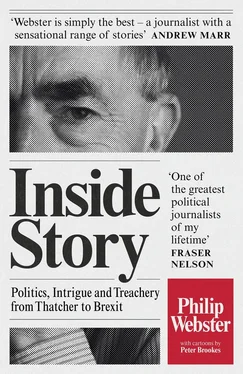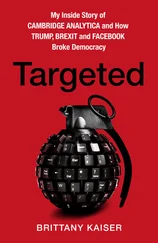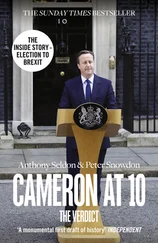I have known Boris Johnson and Michael Gove for years. I remember little of Boris’s brief spell on The Times as a young reporter, but got to know him pretty well on my regular trips to European summits when he was the Brussels chief for The Daily Telegraph . I knew Michael well from his time as comment editor and news editor at The Times , when we would have several conversations every day about the political stories of the moment.
I got on very well with both of them but neither I nor anyone who worked with them could have dreamt that one day they would have the destiny of the nation in their hands. Boris made us laugh and was wonderfully indecisive, as I describe in a later chapter. Govey, as many in the office called him, was bookish, polite, deeply knowledgeable about politics, humorous. We knew that Gove, a Conservative, was looking for a parliamentary seat. But political leaders? It never occurred to us.
Yet here they were, on the morning of 24 June, squinting into the cameras, speaking in hushed, statesmanlike tones about the seriousness of the decision that had been taken. They together had been the public face – along with Farage – of the ‘Leave’ campaign. And here on the dawn of victory it was obvious they had no idea what would happen next. That ignorance was shared by most of the rest of the Government. As the markets tumbled, and as recriminations broke out between the rival campaigns, government came to a stop and it was clear that there had been little planning for a Brexit outcome.
As the Government floundered, Her Majesty’s Opposition fell apart. The campaign to stay in the EU, dubbed ‘Remain’, lost because millions of traditional Labour supporters in its heartlands voted to leave, rebelling at last at what they saw as a southern elite telling them what was good for them and failing to heed their worries about excessive immigration. Many saw themselves as the victims of what the southerners called globalization and what they saw as foreigners taking their jobs.
Labour was distraught because as a party it was strongly in favour of staying in. But Jeremy Corbyn had a long history of animosity towards the EU and was felt at best not to have pulled his weight during the campaign and at worst to have allowed his hard-left aides to undermine it. His shadow Cabinet and front-bench walked out on him, a motion of no confidence was easily passed against him, and senior figures dithered over challenging him. He refused to step down and vowed to fight on. Angela Eagle, shadow business secretary and shadow first secretary, who had excelled during the previous year when standing in for Corbyn at PM’s Questions, announced she was running but then pulled out, leaving Owen Smith, former shadow work and pensions secretary and an MP for only six years, to take on Corbyn. A leadership contest – for the second summer in succession – was under way as this book went to the printers.
Within a week of the referendum the Tory party was in complete chaos. Johnson was briefly and magically transformed from the assassin of the Prime Minister into the unity candidate best able to uphold the values of liberal Conservatism. Gove promised to be his campaign manager for what looked likely to be a relatively straightforward victory. We should have known, however, that nothing is simple in the Tory party.
Gove, his campaign team, and his wife, the journalist Sarah Vine, began – according to their side of the story – to have doubts about Johnson’s ability to be prime minister, leading Gove, just a week after the vote, to withdraw support from Johnson, announce he was standing himself and decry the leadership qualities of his friend and colleague.
The betrayal stunned Johnson, who swiftly pulled out, leaving May, the home secretary, the clear favourite, and his team went to war on Gove. One suggested there was a ‘deep pit reserved in hell’ for Gove, Johnson’s sister Rachel accused Gove of being a political psychopath, and Ben Wallace, another Johnson campaign aide, said Gove could not be trusted to be prime minister because he has ‘an emotional need to gossip, particularly when drink is taken, as it all too often seemed to be’. The governing party was in turmoil.
How did the two men who had done more than any, apart from Farage, to bring Brexit about fall out so spectacularly and so quickly?
Friends told me that Johnson had asked Gove to be his campaign manager on the Friday after the vote. Gove asked for twenty-four hours to think it over and was approached by several colleagues to run. He pointed out that he had always said he did not want to be prime minister and felt that Boris was the man.
Gove’s friends said that, although he had known Boris for twenty years, he had never worked closely with him. Johnson had risen to the occasion during the campaign and Gove assumed he was ready for the top job. But that confidence was to be swiftly shattered. According to friends, he found that Johnson had only a ramshackle leadership campaign operation in place and did not appear to be taking seriously the coming moment when he switched from the populist ex-mayor liked by the voters to the serious job of prime minister. Little work had been done on setting out a programme or vision for leadership.
For three days Gove campaigned for Johnson, growing more and more concerned that he seemed unfocused on the task in hand. For Boris, it was vital to have Andrea Leadsom, who had won plaudits for her role during the referendum campaign, on board. I have learnt that on the morning of Wednesday, 29 June, an astonishing meeting took place in a Commons office. Three of the leaders of the Brexit cause met privately to discuss what jobs would be allocated if Johnson won.
They were Johnson, Gove and Leadsom. The latter, at the time an energy minister, asked to be chancellor in return for supporting Johnson. Gove pointed out there were two top jobs, the other being deputy prime minister, who would also have the job of running the negotiations with the EU on Brexit. Leadsom said she assumed Gove would do the latter job but Johnson said he wanted Gove to be chancellor. Finally it was agreed that Leadsom would have one of the top jobs and that Johnson would make this clear in a letter, and send out a tweet saying that Leadsom was on board with his campaign.
As has been revealed since, the letter did not reach Leadsom by the time she had stipulated and the tweet did not materialize. As a result she prepared to announce that she would stand, having already built up a serious level of support among MPs. That Wednesday, Johnson was also supposed to be writing his launch speech for the next day, but by midnight he had scarcely done any of it. The Leadsom fiasco and the failure to prepare were two last straws.
Gove and other figures like Nick Boles, the skills minister, were dismayed, and Gove finally decided that Johnson did not have the qualities to be prime minister. He told allies: ‘I could not in those circumstances bring myself to recommend to my friends and fellow MPs that Boris was suitable to be PM. When Gordon Brown was about to become prime minister a lot of senior people believed he would not be up to it but stayed silent. I could not do that. I had to be honest about what I saw as Boris’s failings.’
Gove then announced he would stand, and within minutes Johnson, appearing at what would have been his launch, pulled out, stunning his supporters in the audience who had not been forewarned.
Gove was surprised. He had expected Johnson to stay in the race and to tell him (Gove) that he would show him that he was good enough, friends said. May, who had a long-running dispute with Johnson when he was mayor when she opposed the use of water cannon on the streets of the capital, had barely launched her campaign when she learnt her long-time foe was out of the race.
Читать дальше











